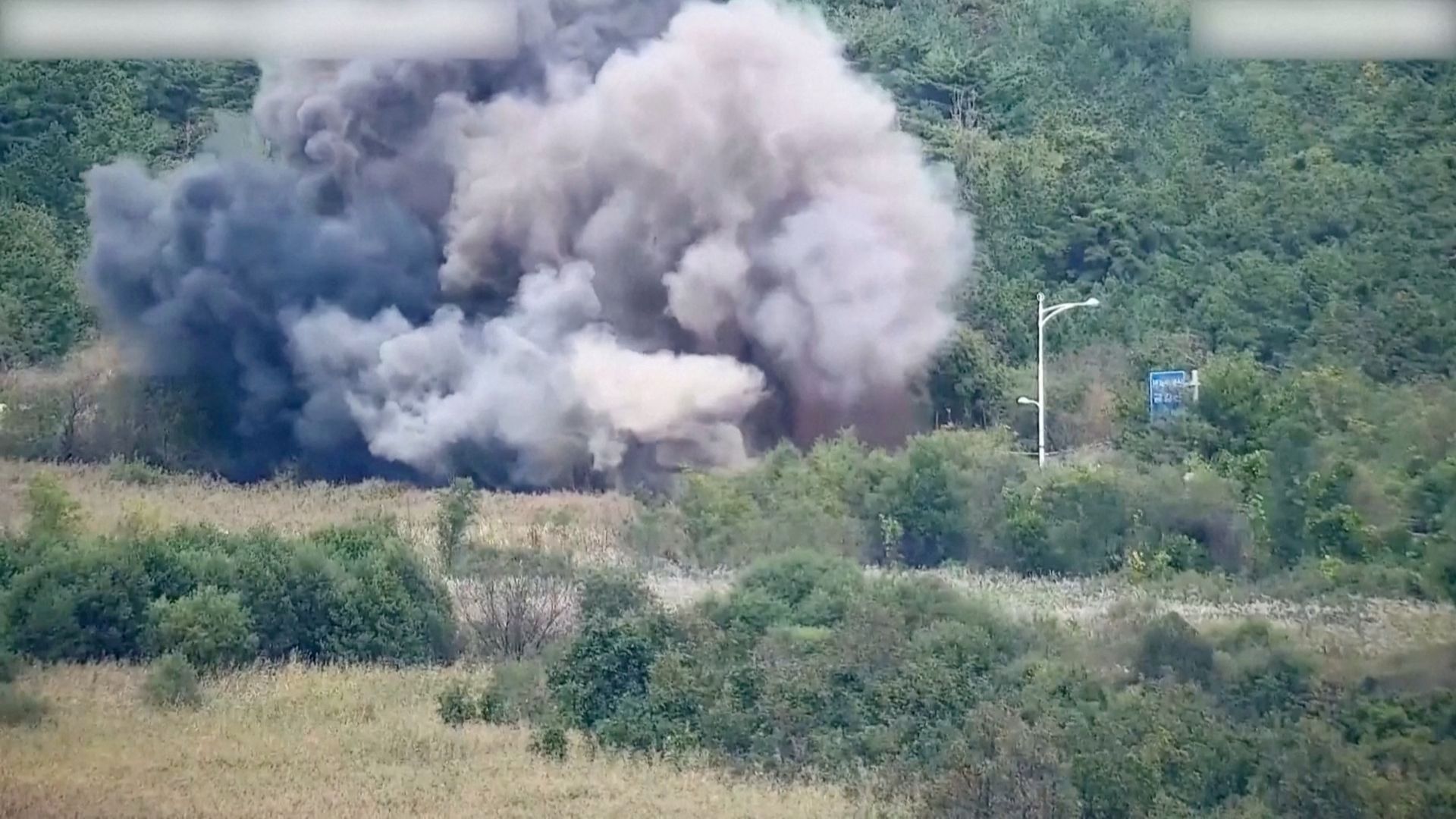North Korea has blown up roads and rail lines that lead up to the border with South Korea – a further sign of its rejection of any possibility of reunification.
South Korea condemned the incident and said it was deplorable that its neighbour was “repeatedly conducting such regressive behaviour”.
Around midday on Tuesday, some parts of rail lines and roads that connected the two countries were destroyed, according to South Korea’s military.
It came after rising tensions on the peninsula, with Pyongyang saying last week it would cut off the linking routes and further fortify areas on its side of the border.
In response to the blasts, South Korean military fired warning shots.
A video released by the military shows a plume of smoke rising above a road in the North following an explosion.
Destroying the roads is in line with Kim Jong Un’s push to cut off ties with South Korea and formally cement it as the North’s principal enemy.
Keep up with all the latest news from the UK and around the world by following Sky News
It comes after the North accused the South of launching drones over its capital three times this month in order to drop propaganda leaflets.
The country’s military warned of a “horrible disaster” if the drones were located again and said it has put eight-armed artillery units at the border “on standby to open fire”.
According to experts, it is highly unlikely for the North to launch full-scale, pre-emptive attacks as its military is outmatched by the combined US and South Korean forces.
Be the first to get Breaking News
Install the Sky News app for free
Read more:
Inside North Korea’s nuclear weapons programme
North Korea to reopen border for international tourists
South Korea has refused to confirm whether it sent drones, but warned it would punish North Korea if the safety of its citizens is threatened.
Officials in the South claim the North has been adding anti-tank barriers, planting mines and reinforcing roads on its side of the border since earlier this year in a likely attempt to boost its frontline security and prevent soldiers and citizens from defecting.






